Saab enthusiasts gathered in the Shunyi District of Beijing on June 30th, 2024, to celebrate their love for this unique automobile brand. Organized by Anderson Hao, the event brought together over ten Saab cars and their passionate owners.
This gathering was a testament to the enduring appeal of Saab cars in China, despite the brand’s challenging history in the country. All the photos from the event were taken by the talented photographer Li Cheng, whose work can be found on his Instagram profile.
Now, let’s take a brief look at the history of Saab in China, a market many might not even know Saab was part of.
Table of Contents
A Brief History of Saab in China
The Early Years (1970s-2004)
Saab’s presence in China began in the 1970s when the brand was showcased at transportation exhibitions. It wasn’t until the 1980s that dealers started importing Saab models like the 900 and 9000, albeit in small quantities.
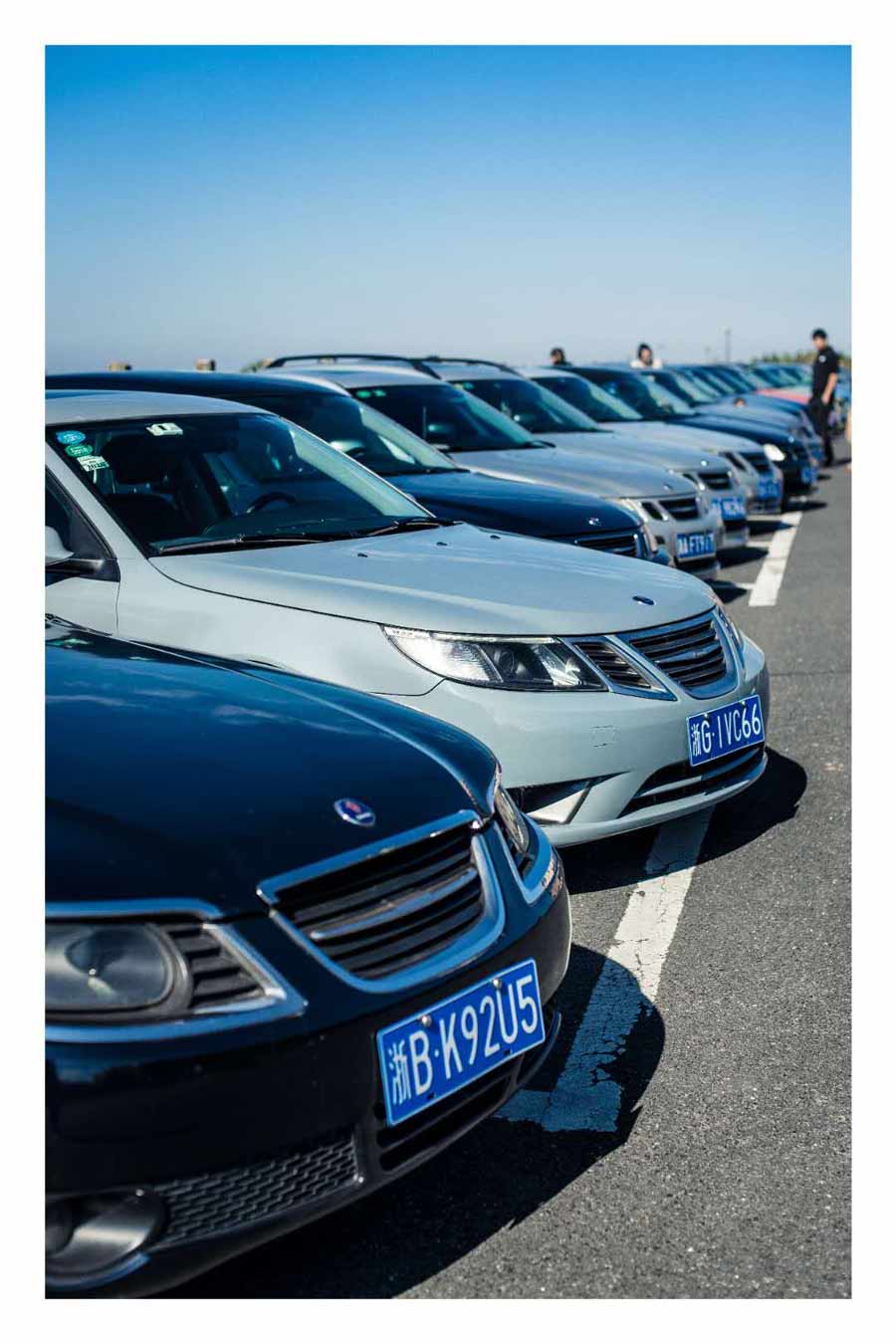
The market at that time was dominated by Mercedes Benz, making Saab a rare sight. In the 1990s, the import of Saab cars increased, and some state-owned enterprises even adopted the 9000 as official vehicles. A notable highlight was the 9000 Aero, gifted to the head coach of China’s national table tennis team by Sweden.
The GM Era (2004-2010)
Saab officially entered the Chinese market through General Motors (GM) in 2004. The brand was introduced alongside Opel and Hummer, leveraging GM’s extensive presence in the Asia Pacific region. The period from 2006 to 2010 saw the launch of the upgraded 9-5 model, which marked Saab’s significant push into the Chinese market under Shanghai General Motors’ authorization. During this time, Saab enjoyed excellent service and financial support, maintaining a loyal customer base.
Post-GM Challenges
After GM ceased its operations with Saab, the brand’s presence in China faced several challenges. The maintenance and repair services were transferred to Buick dealers, making it harder for Saab owners to find dedicated support. Despite these obstacles, the community of Saab enthusiasts in China remained strong, as evidenced by gatherings like the one organized in Beijing.
The Saab Gathering in Beijing
Planning and Preparation
Organizing the Saab gathering in Beijing was no easy task. Anderson Hao, the event organizer, faced numerous challenges, but his determination and the support of the Saab community made it possible. This event was the first large-scale Saab gathering in Beijing since the NEVS tasting event in 2019, which added to the excitement and anticipation among attendees.
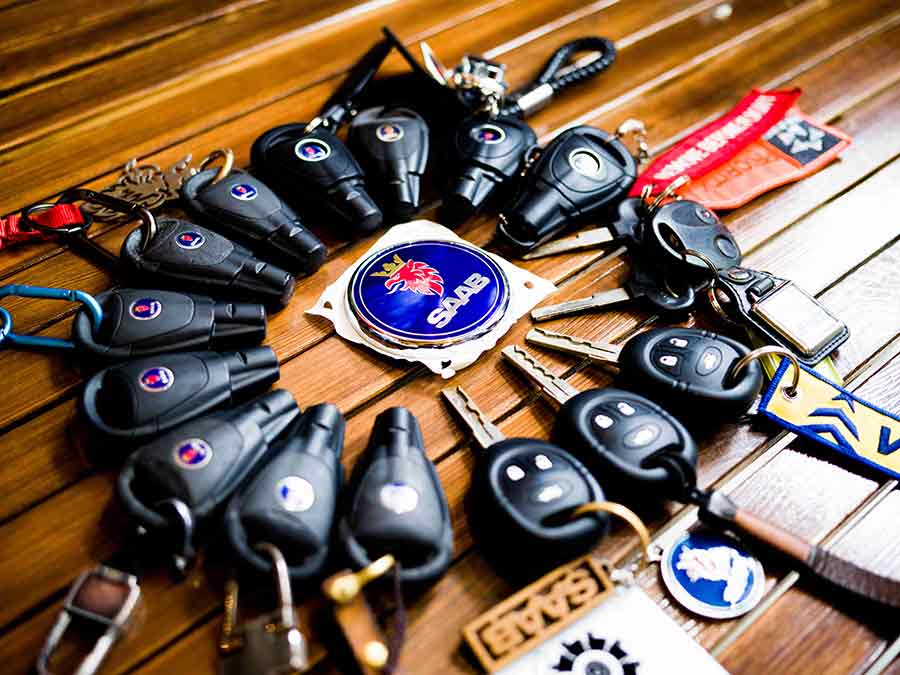
The Event Day
On June 30th, 2024, the Shunyi District of Beijing came alive with the sight of gleaming Saab cars lined up in front of Lake Park. The gathering featured a mix of models, including the 9-5 Aero, 9-3, and even some classic 9000s. The event was not just about showcasing the cars; it was a celebration of the Saab spirit, camaraderie, and shared passion for a brand that has carved a unique niche in the automotive world.
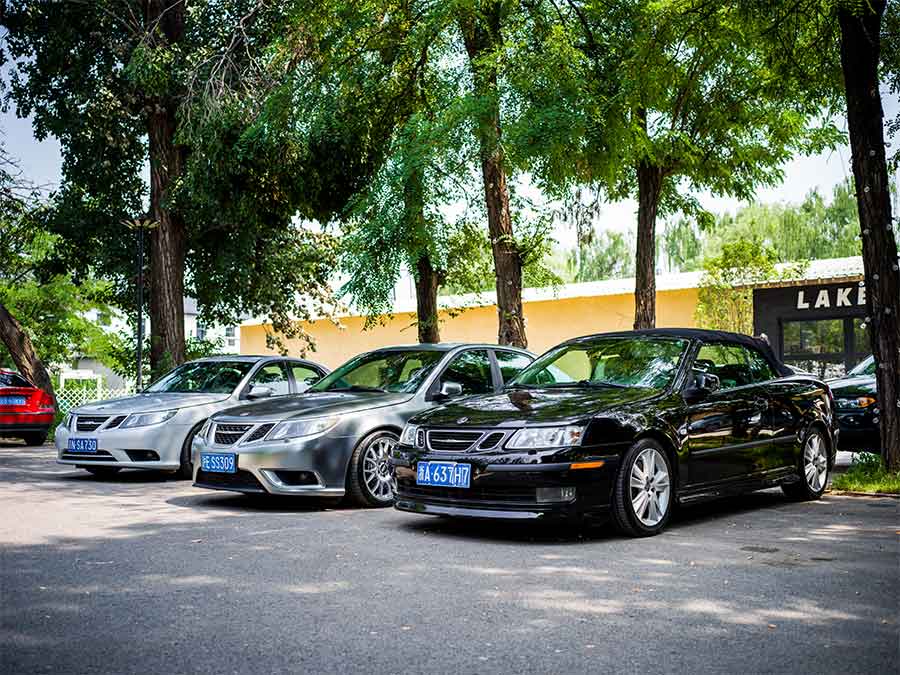
Highlights and Activities
The gathering included various activities such as car displays, photo sessions, and discussions about Saab’s history and future. Anderson Hao also addressed common questions about driving Saab cars in China, which he had collected from global Saab forums. These discussions provided valuable insights and strengthened the bond among Saab enthusiasts.
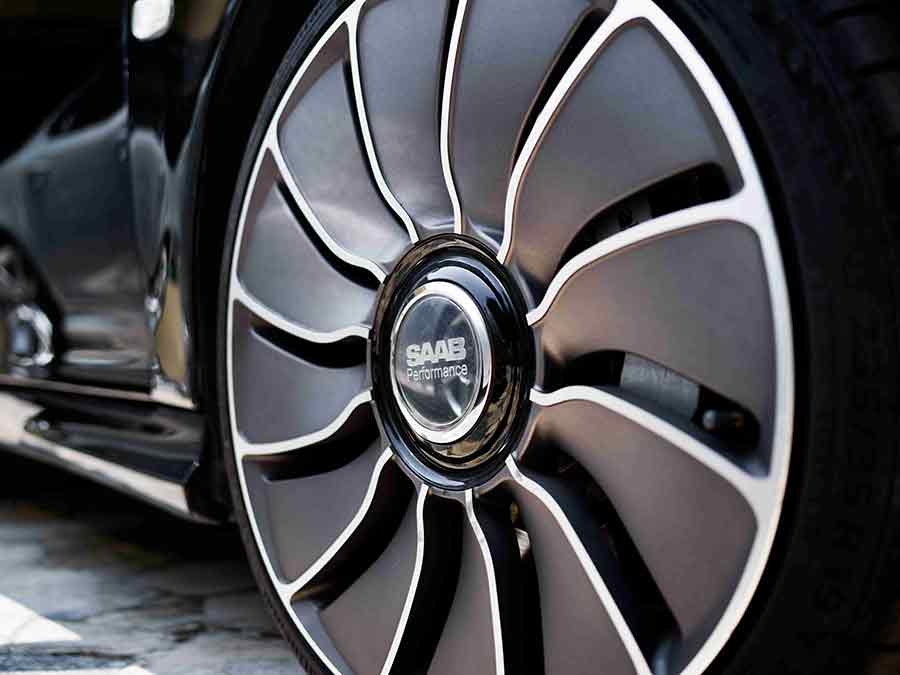
Saab’s Market Performance in China
Sales and Popularity
Saab’s market performance in China has been modest. The brand never achieved mass-market appeal, with approximately 2100 units of the 9-3 and 400 units of the 9-5 sold in total. Other models were sold in much smaller numbers. When Saab entered the Chinese market, it faced stiff competition from well-established brands like BMW, Mercedes Benz, and Audi, which dominated the luxury car segment.
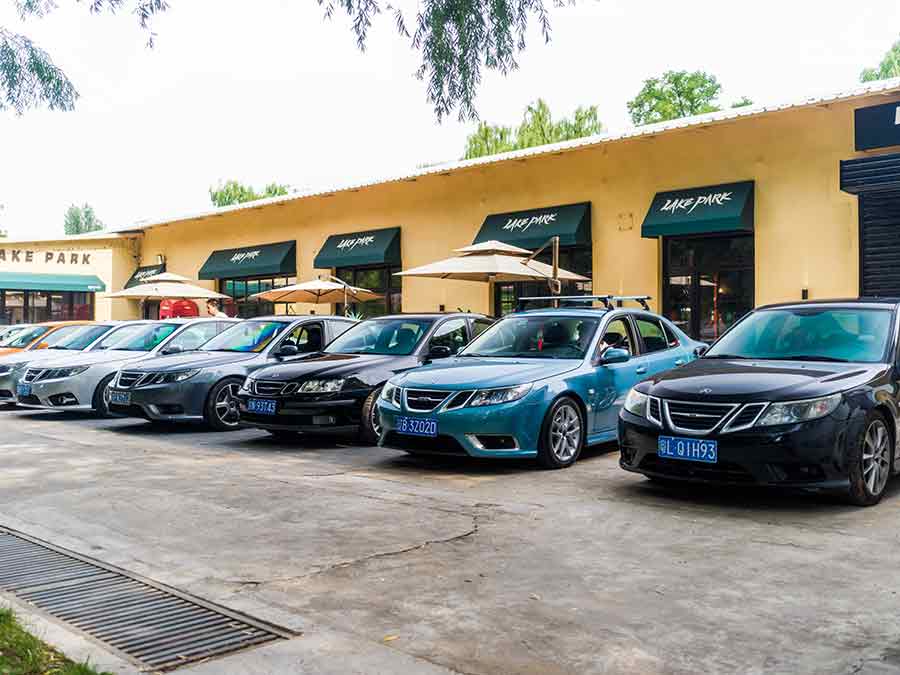
Challenges and Resilience
Despite these challenges, the Saab community in China has shown remarkable resilience. The Beijing gathering is a testament to this resilience, as it brought together enthusiasts who have kept the Saab spirit alive through their passion and dedication. These gatherings provide a platform for sharing knowledge, experiences, and the joy of owning a Saab.
The Role of Saab Enthusiast Clubs
Community and Support
Saab enthusiast clubs play a crucial role in supporting owners and keeping the community vibrant. These clubs organize events, provide technical support, and foster a sense of belonging among members. In China, several Saab clubs actively engage with owners, offering them a platform to connect and share their love for the brand.
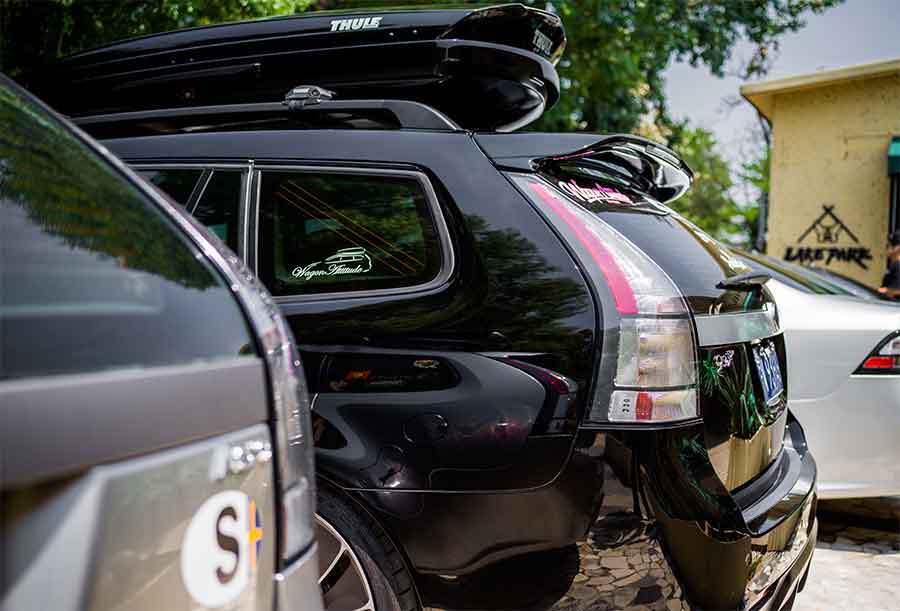
Historical Significance
The historical significance of Saab clubs cannot be overstated. They have preserved the legacy of Saab cars through their activities and events. The Beijing gathering is a continuation of this tradition, showcasing the enduring appeal of Saab cars and the strong community that supports them.
The Future of Saab in China
Looking Ahead
The future of Saab in China remains uncertain, but the passion of its enthusiasts ensures that the brand will not be forgotten. Events like the Beijing gathering highlight the potential for Saab to maintain a niche market presence. The dedication of owners and the support of enthusiast clubs will play a vital role in keeping the Saab legacy alive.
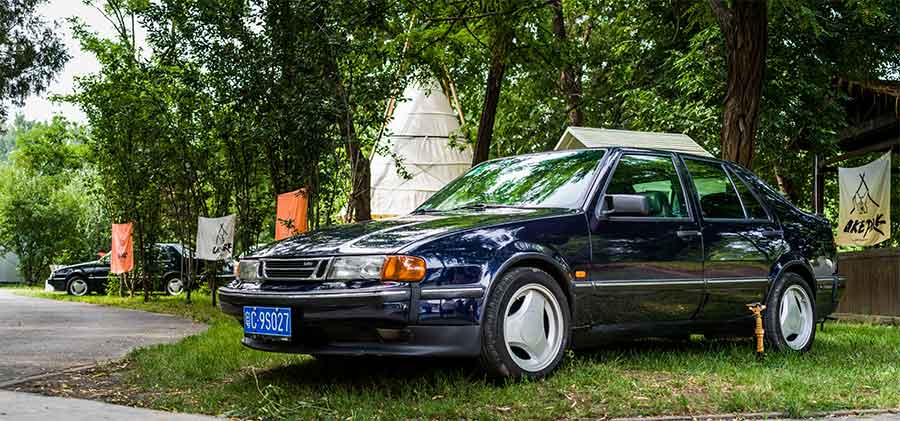
Potential for Growth
While Saab may not see significant growth in the mass market, there is potential for the brand to thrive in the enthusiast segment. By focusing on the unique aspects of Saab cars and leveraging the strong community support, there is an opportunity to build a sustainable future for Saab in China.
Reflections on the Beijing Saab Gathering
The Saab gathering in Beijing wasn’t just a meet-up; it was a testament to the enduring bond between enthusiasts and their beloved cars. Anderson Hao and his team, with genuine dedication, brought together Saab lovers from across China, each with their own story and connection to the brand.
This event wasn’t about the quantity of cars but the quality of the community spirit, showing that even in a market where Saab struggled, the passion remains strong. The Beijing gathering vividly illustrated that Saab’s legacy lives on through the people who continue to cherish and celebrate these unique vehicles.






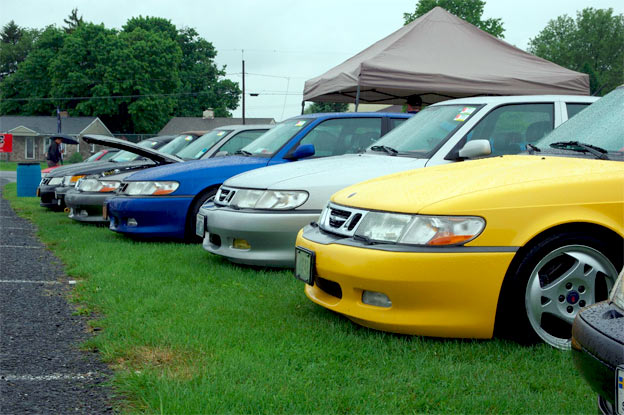
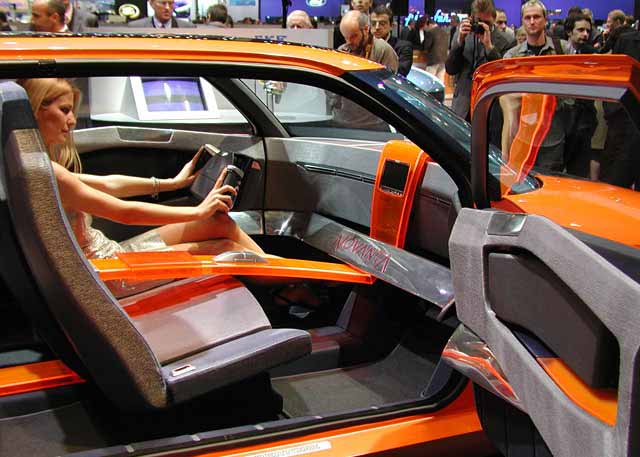


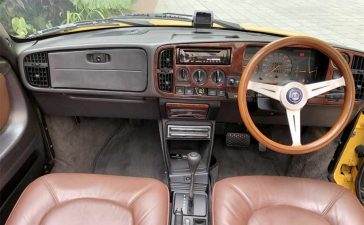
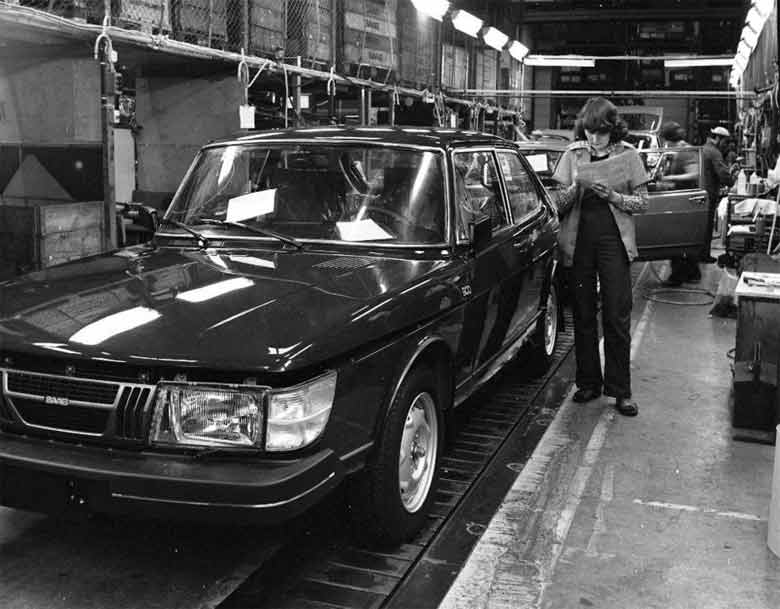
Great orange colour 😍 was that a factory option colour?
in 1974 it was! Sunset orange
The one next to the orange one looks like pewter
Wonder why the venue is China🙂 – not! Looks like the Chinese “SAAB” beats the “MG” so far by design. Let’s see..
I used to live in Shanghai during 2008-2016 and it was not until SAAB closed down you could spot SAAB cars and sales on the local market. According info I get then was that a large number of SAAB 93 that was left in factory stock in Sweden was sold and ended up in China and some SAAB “dealershops” poped up for a few years. My local neighbour bought one and showed it of for me since I am from Sweden, he had no idea that SAAB was closed down.
The «americans» / GM owned SAAB for several years and they stopped both the production and the brand. No one are allowed to use the name or the «latest technology» from the last productioncars. GM destroyd the brands future and the possibility to make cars with the name SAAB!
giusto!questo marchio è nato con certi concetti!!al mondo solo la volvo anche lei svedese gli si avvicinava.macchine di un certo fascino,(oltre la sicurezza e affidabilità!!)solo un popolo come gli svedesi potranno riportare in vita questo marchio,e una storia unica, bellissima ,e affascinante come la saab.i cinesi possono solo ricopiare,ma non mantenere una mentalità e una fantasia che non gli appartengono!! spiacente.